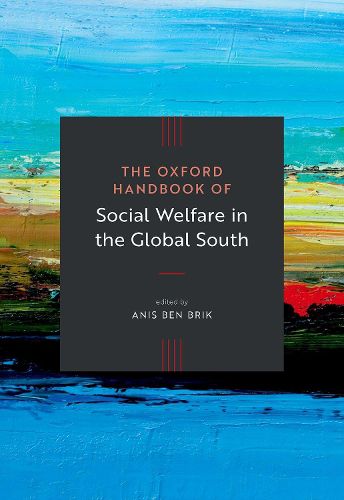Readings Newsletter
Become a Readings Member to make your shopping experience even easier.
Sign in or sign up for free!
You’re not far away from qualifying for FREE standard shipping within Australia
You’ve qualified for FREE standard shipping within Australia
The cart is loading…






This handbook provides an examination of the theoretical foundations, methodological innovations, and practical applications that are redefining evaluation in the Global South. It explores how scholars and practitioners are challenging conventional evaluation paradigms by centering indigenous knowledge systems, participatory approaches, and context-specific methodologies. Organized around three core principles--decolonization, adaptation, and systemic transformation--the volume articulates what distinguishes Southern evaluation practices, traces their historical development, and charts their future trajectories. Engaging with critical debates in development studies, public policy, and social justice, the book addresses fundamental concepts in evaluation theory including power, equity, validity, and use, while examining their application across diverse domains such as climate resilience, gender justice, health systems, and post-crisis recovery. Collectively, these contributions establish this handbook as an essential resource for understanding how evaluation is being reimagined to address the complex challenges of our time.This volume stands as a definitive statement on the evolving field of evaluation in Southern contexts. It moves beyond technical debates about methods to confront fundamental questions about knowledge production, power relations, and the purpose of evaluation itself. Through its critical engagement with both theory and practice, the handbook not only maps the current landscape but also points the way toward more equitable, responsive, and transformative approaches to evaluation. For scholars, practitioners, and policymakers alike, it offers an indispensable guide to understanding how evaluation can better serve the needs and aspirations of communities across the Global South while contributing to more just and sustainable futures.
$9.00 standard shipping within Australia
FREE standard shipping within Australia for orders over $100.00
Express & International shipping calculated at checkout
Stock availability can be subject to change without notice. We recommend calling the shop or contacting our online team to check availability of low stock items. Please see our Shopping Online page for more details.
This handbook provides an examination of the theoretical foundations, methodological innovations, and practical applications that are redefining evaluation in the Global South. It explores how scholars and practitioners are challenging conventional evaluation paradigms by centering indigenous knowledge systems, participatory approaches, and context-specific methodologies. Organized around three core principles--decolonization, adaptation, and systemic transformation--the volume articulates what distinguishes Southern evaluation practices, traces their historical development, and charts their future trajectories. Engaging with critical debates in development studies, public policy, and social justice, the book addresses fundamental concepts in evaluation theory including power, equity, validity, and use, while examining their application across diverse domains such as climate resilience, gender justice, health systems, and post-crisis recovery. Collectively, these contributions establish this handbook as an essential resource for understanding how evaluation is being reimagined to address the complex challenges of our time.This volume stands as a definitive statement on the evolving field of evaluation in Southern contexts. It moves beyond technical debates about methods to confront fundamental questions about knowledge production, power relations, and the purpose of evaluation itself. Through its critical engagement with both theory and practice, the handbook not only maps the current landscape but also points the way toward more equitable, responsive, and transformative approaches to evaluation. For scholars, practitioners, and policymakers alike, it offers an indispensable guide to understanding how evaluation can better serve the needs and aspirations of communities across the Global South while contributing to more just and sustainable futures.